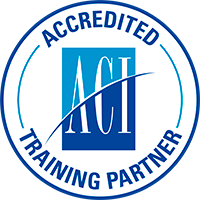Airport and aeronautical management
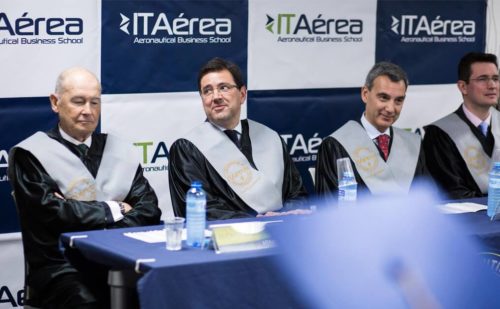
The purpose of this article is to synthesize the most important information related to airport and aeronautical management.
Index:
- What is Airport and Aeronautical Management? What does it consist of?
- The Airport and Aeronautical Management companies
- Training on Airport and Aeronautical Management
- Types of Training in Airport and Aeronautical Management
- Where to Study Airport Management and Aeronautics?
- Specialization in Aeronautical and Airport Management
- Training Prior to a Postgraduate program in Aeronautical and Airport Management
- Job prospects for Training in Airport and Aeronautics Management, Employment or Work
What is Airport and Aeronautical Management? What does it consist of?
In summary, it would be about the management and direction of air transport companies; airports, air companies, management companies in the broad sense of air navigation (whether the airspace is privatized or the control towers), aircraft manufacturers and all those companies linked to the above and that act as from suppliers or customers.
Therefore, it is not about technical training but about business organization.
In purity... (Click to display more information)
... This concept has always existed. For on a strictly theoretical level, the task of managing air transport companies is inherent to them insofar as they need human mediation to act. However, in the last decade, as a result of the global economic crisis, this concept has become more valuable and the tasks involved have been reorganized internally. If in previous times safety, infrastructure development and operations were the management sub-concepts that prevailed, today, and especially in the last 5/10 years, it is profitability, marketing and efficiency on which the manager is placing greater emphasis. It is not that the rest are unimportant, but that they have grown to at least the level of the previous ones.
When in this publication we refer to airport or aeronautical management, we are not referring to the simple fact of managing air transport companies, but to the incorporation of concepts that were not even common a decade ago and are common today: airport marketing, the profitability of airport managers, etc.
We must highlight two important authors on the subject: the well-known Rigas Doganis on the one hand, and Don Carlos Medranoon the other.
The first of them has been considered the author who started the way forward on the subject and who, in an environment not as propitious as the current one, envisioned the future of airlines and airport managers. Rigas Doganis is a consultant and strategic advisor to airlines and governments around the world; CEO of airlines such as Olympic Airways and non-executive director of others such as easyJet and South African Airways; professor and head of the Air Transport Department at Cranfield University from 1990 to 1997 and author of numerous books including the following three: Flying Off Course: Airline Economics and Marketing, The Airline Business and The Airport Business.
The latter, honorary president of the ITAerea Business School and former general director of AENA, is the author of the manual "The Business of Airports", an update of Rigas Doganis' philosophy and a particular analysis of the national context.
The inclusion of corporate governance to air transport companies is basically the answer to the question we were asking.
TRAINING ON AIRPORT MANAGEMENT: REQUEST INFORMATION
The Airport and Aeronautical Management companies
They are undoubtedly air transport companies and therefore it is impossible to list all of them (Vueling, Volotea...). In relation to the airline companies there would be no doubt, nor the aircraft manufacturing companies although with respect to the latter there are many large companies that supply the companies that we all know as the aircraft manufacturers (Airbus and Boeing).
Not everyone knows that there are also companies that provide air navigation services such as Ferronats, which have specialized in the management of control towers.
Many others are necessary suppliers in the aeronautical world and for aircraft. They provide cleaning, catering, security management services...
And the airport and aeronautical managers, existing throughout the world. They are companies that mostly manage airports indirectly after awarding them.
Training on Airport and Aeronautical Management
Types of Training in Airport and Aeronautical Management
There are different levels of training in aeronautical and airport management.
University degrees, postgraduate degrees, diplomas and seminars or lower courses.
They differ by the degree of specialization and their duration.
Degree in Aeronautical Management or Bachelor's Degree in Airport Management
University degrees in aeronautical and airport management and management have a duration of 4 years.
Postgraduate degrees or Masters in Airport and Aeronautical Management
Postgraduate or master's degrees in aeronautical and airport management and direction must have a duration of more than 600 hours.
Examples:
- Master in Sustainable Air Transport Management Executive e-learning modality
- Master of Business Administration in Aviation Management e-learning modality
Diplomas in Airport and Aeronautics Management
Diplomas in aeronautical and airport management and direction from 100 hours to 600 hours.
Examples:
Courses in Airport Management and Aeronautics
Seminars or courses in aeronautical and airport management and direction of shorter duration.
There are also expert courses and specialist courses that would fall within the time frame of 100 hours to 600 hours.
Examples:
- Course on Airport Management
- Course on Airline Management
- Superior University Course on Aviation English UDIMA
- Course on Aeronautical Industry management
- Course on Air Navigation Management
- Course on Air Law
- Course on Aviation Safety and Security Management and Human Factors in the implementation of the SMS
COURSE ON AIRPORT MANAGEMENT
Depending on the student's objective, it will be better to opt for one program or another, but nevertheless we would like to give the reader the following advice:
Where to Study Airport Management and Aeronautics?
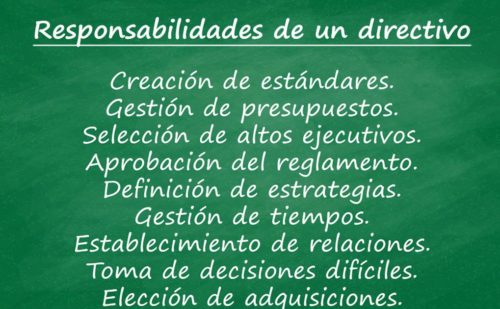
Beyond the duration of the program, what is important, to the extent that it is about transmitting real knowledge of how to manage or direct a specific type of company, those in air transport, is to do so through those professionals who are aeronautical or airport managers or directors.
Examples of professional teachers and where not to study in the sector... (Click to display more information)
Let's take some examples:
- It is not a question of explaining how an airport operates, but how the operations department of an airport or airport manager is run or managed.
- It is not a question of explaining how to maintain the airport infrastructure (that would be a technical issue) but how maintenance should be organized; budget, human resources, timing...
- It is not about explaining what an airline's revenues are, but how an airline achieves its profitability and how the finance department does it.
- This is also true for the rest of the air transport companies.
Therefore, the teacher must be a general manager or manager. He is the only one with the necessary knowledge. That will be the starting requirement, because logically the academic department will have to audit his or her skills as a teacher. But only and exclusively if the first requirement is met.
Therefore, you should not study aeronautical and airport management in:
- General educational institutions that use teachers with experience in the business world to extrapolate this knowledge to the aeronautical or airport world. This world has its own specialties.
- Educational institutions specialized in technical and even aeronautical training, using these teachers to prepare an ad hoc presentation on these aspects. It is not a question, as we have said, of explaining airport maintenance, for example, it is a question of explaining how this department is organized. A good maintenance technician could give a good lecture on maintenance and a bad lecture on airport management.
- In those institutions that do not have executives from the aeronautical or airport sector but do have PhDs specialized in the field, since their specialization has not been derived from real experience, as is the case of airport and aeronautical directors and managers.
In summary, training in aeronautical and airport management must be carried out in those educational institutions that have professionals in the field. Teaching how to direct or manage requires having directed or managed. And this is the starting requirement, but it is not enough: pedagogy, charisma in class, empathy with the student, must be requirements that accompany the previous one.
Specialization in Aeronautical and Airport Management
The second piece of advice we would like to give is that sometimes we spend too much time training when we don't really need it. Aeronautical and airport management and direction is a specialization of other subjects such as business administration and management or aeronautical engineering. For this reason, a Graduate in Aeronautical Engineering or a Graduate in Business Administration and Management will be able to acquire excellent knowledge through a postgraduate degree and would not need a second degree.
Training Prior to a Postgraduate program in Aeronautical and Airport Management
If you are wondering what previous university studies are the most appropriate to study a postgraduate degree in aeronautical and airport management, undoubtedly the one in airport and aeronautical management, the degrees in aeronautical engineering, as well as the various specialties of industrial or telecommunications or roads and of economics, business administration and law.
Job prospects for Training in Airport and Aeronautics Management, Employment or Work
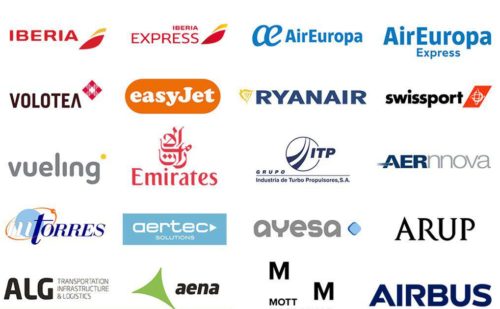
Logically, we are referring to both undergraduate and postgraduate studies specialized in this subject.
An inherent quality of air transport is its internationality. When we talk about employment in aeronautical and airport management we do so in a global context. There are air transport companies all over the world because it is an inherent need for the individual to have to move from one place to another. And especially in those places with significant geographic dispersion and relocation of their urban centers.
Each existing air transport company is a source of employment in aeronautical and airport management, a professional outlet. And all of them have various departments suitable according to previous university training: operations, maintenance, commercial, marketing, financial, juridical or legal.
Analysis... (Click to display more information)
This analysis represents a general orientation and never an exhaustive analysis of each and every one of the existing professional opportunities.
If aeronautical and airport management and direction refers to specialized training in the organization of air transport companies, this is where this analysis should be based.
A complete listing of the various air transport companies that exist is an impossible task, so we will limit ourselves to grouping them into the following areas: airport managers, airlines, companies specialized in air navigation management understood in a broad sense, aircraft manufacturers, law firms with expertise in aviation law and the companies clients or suppliers of all of the above. The framework of analysis is therefore extremely broad and therefore despite being a specialized training, the job offers and career opportunities are many.
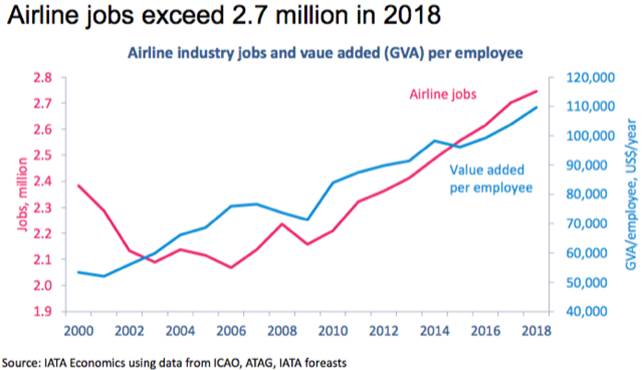
Due to the nature of the air transport business, all these companies are usually large companies in terms of turnover and employees. This does not mean that there are no SMEs in the sector, but that the average in general reports a large size and with a very representative international component. Verbigratia, when in the context of airlines we use the term low cost to define a company with low production costs, these are tremendously high compared to other sectors. Let's take the Ryanair airline as an example. On its own website we can identify the following numbers: 36 connected countries, 87 bases in Europe, 400 new Boeing aircraft, 13,000 employees, 8.6 million customers...
In the aircraft manufacturing sector we can find the company Airbus . Airbus da empleo a unas 63.000 personas en 16 lugares de cuatro países.
Companies such as AENA in the airport area have figures that speak for themselves: 249.2 million passengers, 24510 million euros of market capitalization.
And these are some of the examples of existing air transport companies. They are therefore companies of great dimension and volume, in constant growth and in need of trained personnel.
Let's get a little more specific. Every existing air transport company is a source of employment in aeronautical and airport management, a career opportunity. And all of them have different and appropriate departments depending on the previous training: Operations, Maintenance, Pricing, Revenue Management, Network Strategy Planning, Systems, Quality Control, etc.
Identifying the world of air transport with technical training is a serious mistake. All the aforementioned companies have their own necessary departments that allow their relationship with customers, their internal organization, their sales, etc.
Logically, it is positive to have specialized training that is compatible with these departments. Thus, a graduate in business administration and management, a graduate in law, a graduate in marketing, etc. plus a specialization in aeronautical and airport management.
AENA last 2017 started a massive candidate selection process, Iberia and Iberia express are doing it every month, so are Wamos Air, Swissport, Aertec Solutions, etc. All of them need the specialization of the candidate.
For further information:
- What is Airport and Aeronautical Management?
- Where to Study Airport and Aeronautical Management?
- Job prospects for Training in Airport and Aeronautics Management
ITAérea Aeronautical Business School has:
- International presence. This determines that the student has access to these international sources of employment. The territorial delegates communicate existing job offers to the headquarters to offer them to all students and alumni of the same.
- Teachers, all of them managers of the sector, who facilitate this job insertion.
- Exclusive dedication to airport and aeronautical management during the last decade.
CONTACT info@itaerea.es +34 902 505 501 TEACHERS TRAINING
